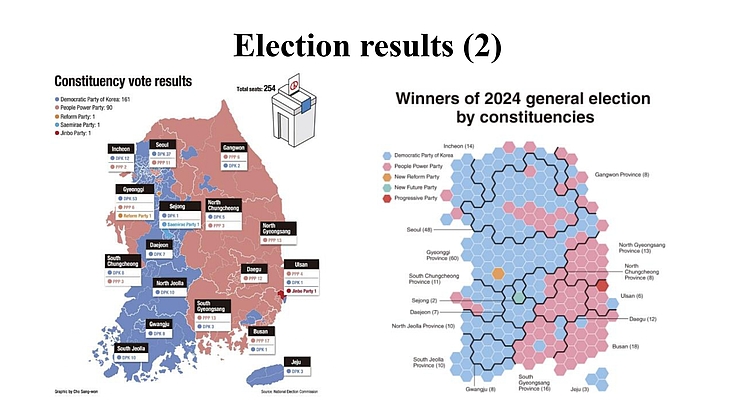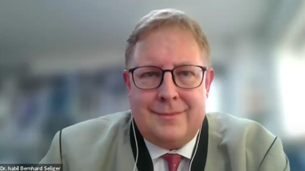Event
Webinar on South Korea’s election outcome

On the 10th of April South Koreans went to the polling stations in order to elect a new National Assembly. Due to the significance of South Korea as an emerging global power, its adherence to democratic principles, and its trade ties with the EU and Germany, the election was not only of local or regional, but of global relevance. Recognizing this, the Brussels office of the HSS took the initiative to host a webinar to analyze the outcomes in both domestic and foreign policy areas, with Prof. Dr. Seliger chosen as the keynote speaker.
Prof. Dr. Seliger commenced his presentation by elucidating the multifaceted factors influencing elections in South Korea. He underscored pivotal events and developments that contributed to the victory of the opposition parties. Notably, he highlighted the country's electoral system, predominantly characterized by a "winner-takes-all" approach, dividing the nation into a western and eastern bloc, each favouring the Democratic Party or the current ruling party, the PPP. Furthermore, Prof. Dr. Seliger highlighted the influence of scandals involving the current President, such as the handbag, on the election.
Regardless of the dominance of the opposition parties in parliament after the elections, Prof. Dr. Seliger expected only minimal shifts in major policy domains, due to the robust authority of the President, given to him the constitution. However, he envisaged minor shifts in the nation's foreign policy strategy. For instance, the nationalist ideology within the Democratic Party, the largest opposition faction, could pose challenges to South Korea's aspiration to assert itself as a proactive global player. This might impede initiatives such as reconciliation with Japan, the trilateral alliance with the US and Japan, efforts towards economic “decoupling” from China and Russia, and arms exports to Western nations and their armed forces.

Regarding domestic policies, Prof. Dr. Seliger foresaw continuity in policy trajectories, given the political similarities between the two major parties. Both parties endorse the centrality of market economics, prioritize infrastructure development, and have expanded social welfare programs in recent decades.
Summing up his analysis, Prof. Dr. Seliger concluded that while the election's ramifications are likely to be modest, minor adjustments may emerge, particularly concerning South Korea's alliance-building strategy. However, he underscored that the nation's most pressing challenge remains its birth-rate, which is, with one of the lowest fertility rates globally, enormously challenging in the long term. Nonetheless, he affirmed that the relationship between South Korea and the EU or Germany is unlikely to undergo any significant alteration.
The Brussels Office of the Hanns Seidel Foundation recorded the whole presentation, which you can access here:
https://www.youtube.com/watch?v=5BJMAajmiHI&t=12s&ab_channel=HSSEurope
